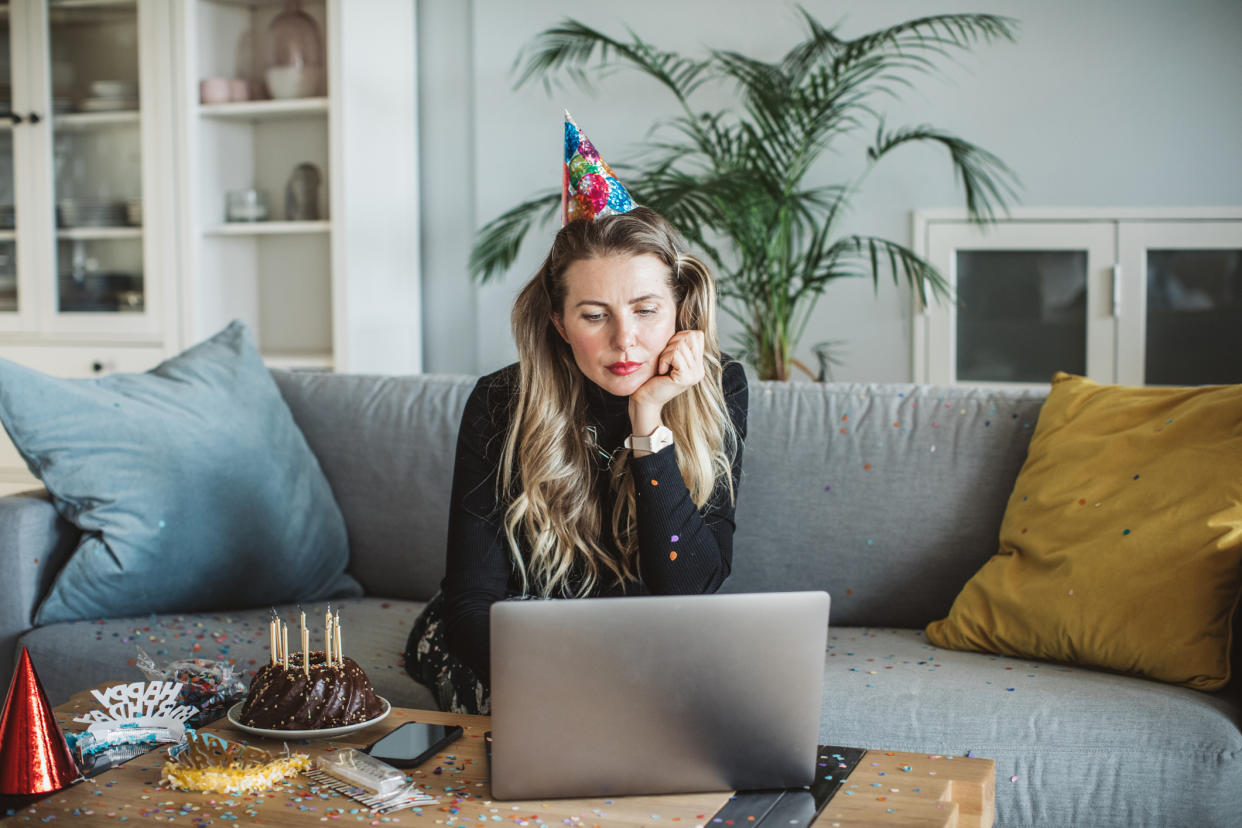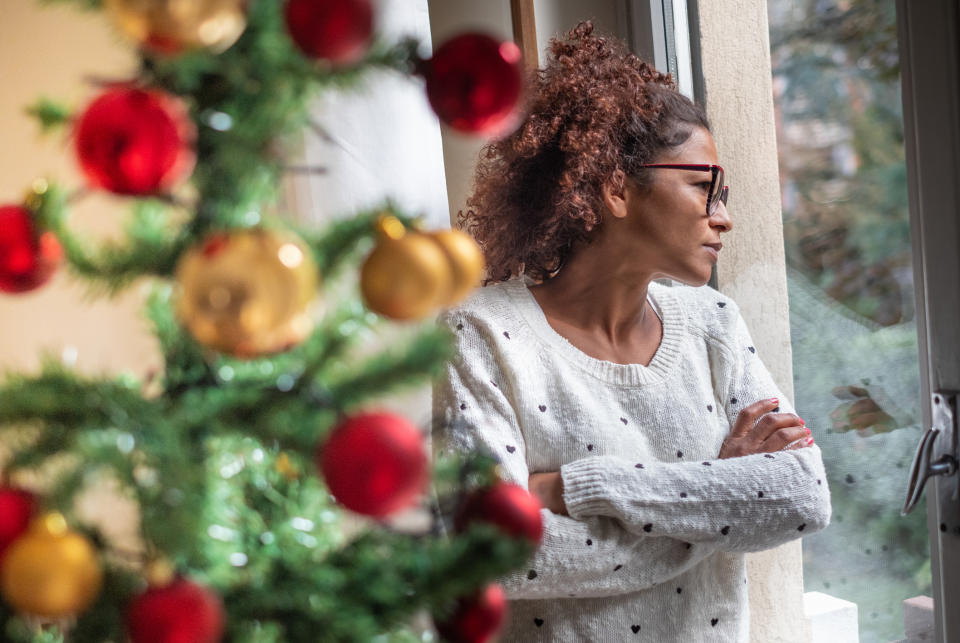The psychological impact of not having anything to look forward to

This time last year, many of us were starting to see our diaries fill up with Christmas parties, post-work drinks and a holiday planned for the summer. There was plenty for us to look forward to for the rest of 2019 and beyond.
Fast forward 12 months and this year’s run up to Christmas is looking really quite different, with coronavirus and the resultant restrictions making it difficult for us to plan anything at all.
It feels as though we’re stuck in limbo with no certainty over whether we’ll be able to see our loved ones this Christmas, or what travel restrictions will be in place next year, and it’s having a pretty big effect on us psychologically.
Dr Elena Touroni, a consultant psychologist and co-founder of The Chelsea Psychology Clinic, says planning events to look forward is important for our mental health as it can help build our resilience and our capacity to cope with daily life.
“In fact, in therapy, it’s a psychological strategy we encourage people to use,” she explains.
“When we’re pushing hard, whether that’s due to work or home/family responsibilities, knowing we have something to look forward to provides us with a psychological reward.
“Without that, the tentative balance between the things we have to do and the things we do simply for fun gets disturbed.”
Read more: We miss colleagues more than we think during coronavirus lockdown
Dr Touroni points out that feeling like you’re living in limbo can lead to people suffering from difficult emotions such as anger and resentment.
“It can also lead to low mood because we’re not getting any of the mood-enhancing psychological benefits these activities create,” she adds.
Watch: Is Christmas cancelled this year?
Psychotherapist Owen O’Kane, author of Ten Times Happier, says the run up to the party season is exacerbating these feelings as we have traded the usual excitement about Christmas for uncertainty.
“I think it’s safe to say many people have had enough of 2020. It’s been a year of lockdowns, losses and the greatest uncertainty many of us have ever experienced,” he explains.
“As Christmas approaches it’s difficult to look forward not knowing whether it’s going to be a microwave meal, with ‘ding dong merrily on high’ sounding like a joke.”
Beyond Christmas, Kane says many of us will also be questioning the year ahead and asking ourselves: “When will this end? Will I ever be able to book a holiday, plan a wedding, or arrange a birthday party for more than six people?”
“We are in uncertain times and many people are feeling a little hopeless and worn out,” he says, citing a Princes Trust report which found that 46% of young people are feeling hopeless.
“Hope has never been more important and can make the most incredible difference to how we deal with life,” he adds.
Not having things to look forward to, can rob us of that hope, says O’Kane, and that has wider implications for our mental wellbeing.
“Hope is often misunderstood as a ‘fluffy’ approach to life in dark times,” he explains. “But this couldn’t be further from the truth.
“When you view life through the lens of hope, the chemistry in your brain changes. Neuroscience research informs us that when we are hopeful the brain produces more endorphins and enkephalins and these contribute to a sense of ease and wellbeing.
“It is also well documented that anxiety reduces and mood improves. A hopeful approach contributes to calm, openness, possibilities and a greater sense of wellness.”
There are ways to regain that feeling of hope, even if the events in the calendar are few and far between, for the foreseeable at least.

How to find hope in uncertain times
Reframe your disappointment: Some plans don’t need to be cancelled - just postponed
Dr Touroni says it is important to try to reframe how we experience the disappointments of things we’ve lost out on this year by planning for the future post-COVID.
“Make a bucket list for when lockdown passes,” she suggests. “What did you take for granted before? Is there somewhere you’d really love to travel to when lockdown lifts? A new hobby you’d like to take up?
“While it’s natural to feel frustrated when comparing our norm before, it’s about shifting our focus to a sense of gratitude - for what we have and also the things we miss.”
Remind yourself dark periods eventually end
Every war, catastrophe, famine or tragic event eventually ends and it is important to remember that, says O’Kane. “This too will end and to date we are hearing encouraging news of a vaccines, better treatment options and encouraging scientific evidence that this virus can be conquered,” he adds.

Avoid negativity
If the daily news is starting to impact your mental health, it could be worth taking a break from it for a while. “Our brains are like computers and if we feed them negative news and information consistently, then this impacts negatively on mood and any sense of optimism,” explains O’Kane. Instead he suggests searching for hopeful stories and surrounding yourself with people who lift your spirits.
Live in the present
Worrying about what could happen next will only lead to increased levels of distress, so when we feel ourselves fixating on the worst case scenario, we should try to focus on the “now” instead, says O’Kane. “Living in the present moment and taking everything one step at a time makes it easier to feel hopeful,” he explains. “It also makes life so much more manageable.”
Read more: Missing the 'cuddle hormone': How lockdown has impacted friendships
Appreciate the little things
Even though we might have had to put a lot of fun things on hold, it is still possible to find joy in your daily life. “It’s about finding an appreciation for the small things everyday,” says Dr Touroni.
She suggests making a daily list of five things you’re grateful for. “These could be as simple as having a roof over your head, friends who care for you,” she says.
Fake it, till you make it
Having hope can help you cope and feel better. “Apart from the chemical changes hope activates in the brain, research also informs us that a hopeful perspective, (a sense that things can get better) improves how you cope with life and how you feel about life,” O’Kane explains. “In some ways hope is like a feel-good drug that we can choose at any point.”
Pay it forward
O’Kane says trying to remain hopeful about the future can have a positive impact on those around you. “Hope isn’t unrealistic or delusional. It’s a belief that better times are possible and that’s news worth spreading,” he explains.
“There is a powerful saying, ‘Where there is life, there is hope’,” he continues. “At the start of 2020 the events of the year would have seemed unimaginable, but we are not defeated. The planet still turns. We live. We look forward. We plan. We strive for better. We hope.”



